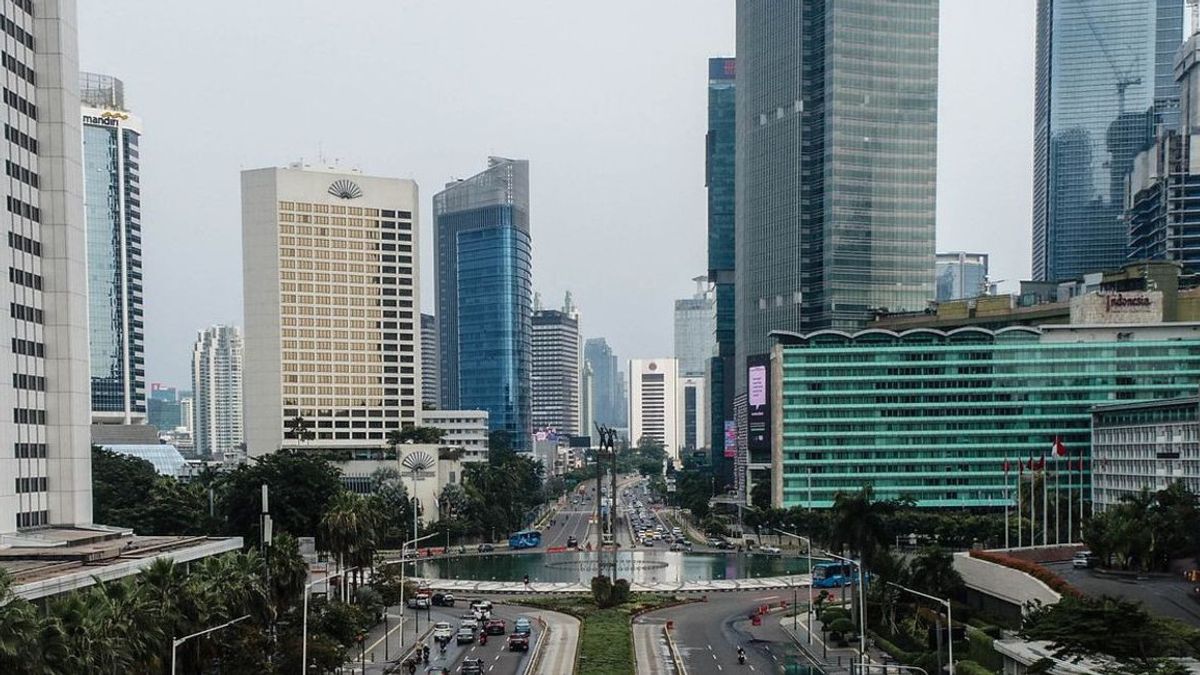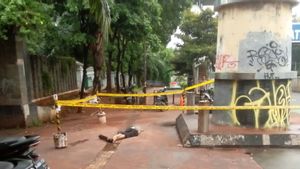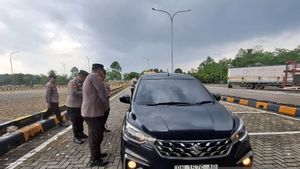JAKARTA - The government has set a new COVID-19 control policy. This time it's called the Enforcement of Emergency Community Activity Restrictions (PPKM). Another term. How is it different from the previously implemented Micro PPKM?
President Joko Widodo (Jokowi) has announced that the Emergency PPKM will be implemented from 3-20 July. Emergency PPKM restricts community activities more strictly than previous policies, including Micro PPKM.
Emergency PPKM is enforced for two weeks in all regencies/cities in Java and Bali. Jokowi also announced the Coordinating Minister for Maritime Affairs and Investment Luhut Insar Panjaitan as the regional coordinator or leader in the Emergency PPKM policy.
Difference
1. Office/work activities
Micro PPKM: Offices in the red and orange zones are required to work from home (WFH), at least 75 percent in a rotating cycle. In addition, the office must enforce strict health protocols. Employees are also prohibited from traveling to other areas. This applies to all offices, ranging from ministries, government agency offices, institutions, BUMN, BUMD or the private sector.
Emergency PPKM: WFH is implemented 100 percent.
2. Learning to teach
PPKM Mikro: Teaching and learning in the red zone is done online. In other zones - apart from the red zone, activities are carried out based on regulations set by the Ministry of Education, Culture, Research and Technology (Kemendikbudristek) with the application of strict health protocols.
Emergency PPKM: All teaching and learning is done online.
3. Essential sectors
Micro PPKM: Essential sector activities can operate 100 percent. The conditions remain with the regulation of operating hours, capacity, and the application of stricter health protocols. The essential sectors in question include industry, basic services, public utilities, and national vital objects. In addition there are also markets, shops, supermarkets, and supermarkets to meet the basic needs of the community.
Emergency PPKM: Implemented 50 percent of work from office (WFO) staff with tightened health protocols. Critical sectors are allowed to apply WFO to 100 percent. Essential sectors include finance and banking, capital markets, payment systems, information and communication technology, non-quarantine handling hotels, and export-oriented industries.
Meanwhile, the coverage of critical sectors, namely energy, health, security, logistics and transportation, food, beverage and supporting industries, petrochemicals, cement, national vital objects, disaster management. National strategic projects and construction are also included, along with basic utilities, electricity and water, and the fulfillment of the basic needs of the people on a daily basis.
Supermarkets, traditional markets, grocery stores, and supermarkets selling daily necessities are limited to operating hours until 20.00 local time, with a capacity of 50 percent of visitors. Pharmacies and drug stores can be open 24 hours a day.
4. Restaurant
PPKM Mikro: Only allowed to open until 20.00 and serve take away orders. This service, as well as delivery, is only valid during restaurant operating hours.
Emergency PPKM: Only take away and delivery are allowed. This applies to all places to eat, be it food stalls, cafes, street vendors or snack stalls.
5. Places of worship
Micro PPKM: Worship activities in mosques, prayer rooms, churches, temples, and others follow the zoning classification. The ones in the Red Zone were temporarily suspended altogether. Others, apply stricter health protocols.
Emergency PPKM: All activities are temporarily suspended.
6. Shopping mall
Micro PPKM: Operational hours are limited to 17.00. Visitor restrictions at 25 percent of capacity.
Emergency PPKM: Shopping activities are completely closed.
7. Art, social and cultural activities
PPKM Mikro: Activities at art, social, and cultural locations in the red zone are temporarily suspended. Meanwhile, in other zones it is permitted with 25 percent of the maximum capacity.
Emergency PPKM: All activities are temporarily closed.
*Read other information about COVID-19 or read other interesting articles from Yudhistira Mahabharata.
Other BERNASThe English, Chinese, Japanese, Arabic, and French versions are automatically generated by the AI. So there may still be inaccuracies in translating, please always see Indonesian as our main language. (system supported by DigitalSiber.id)









